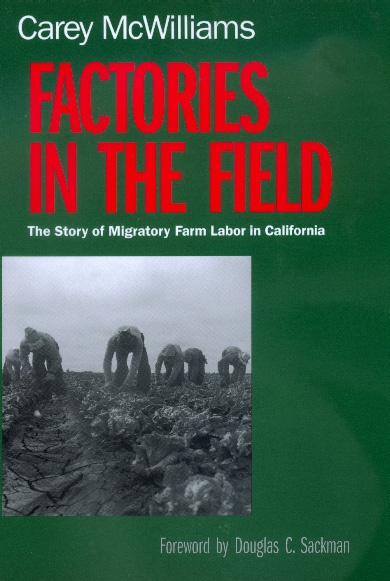“California is America—only more so.”
—Carey McWilliams
The writer and journalist Carey McWilliams offers one answer to the question of why California is such a useful window into the cultural history and significance of the United States.

While McWilliams is mostly known for his twenty-year career as the editor of The Nation, between 1939 and 1950 his writings were focused on California. His book California: The Great Exception (1949) is one of the important early works on the cultural history of California. His book Southern California Country (1946) caught the attention of Robert Towne’s screenplay for “Chinatown,” his Prejudice (1944) argued against the internment of Japanese-American citizens during the Second World War, and his Factories in the Field (1939) and North from Mexico (1949) offered a glimpse into the agricultural system in the Central Valley of California and the Mexican-American population in the United States. The writing of McWilliams helped Cesar Chavez in his work supporting migrant farmworkers, including the establishment of the National Farm Workers Association.
Historians of California, including Kevin Starr and Patricia Nelson Limerick, have continued to build on the legacy of McWilliams in their work as well. For more about Carey McWilliams, and his life and writing California between 1939 and 1950, read Peter Richardson, “Carey McWilliams: The California Years.”